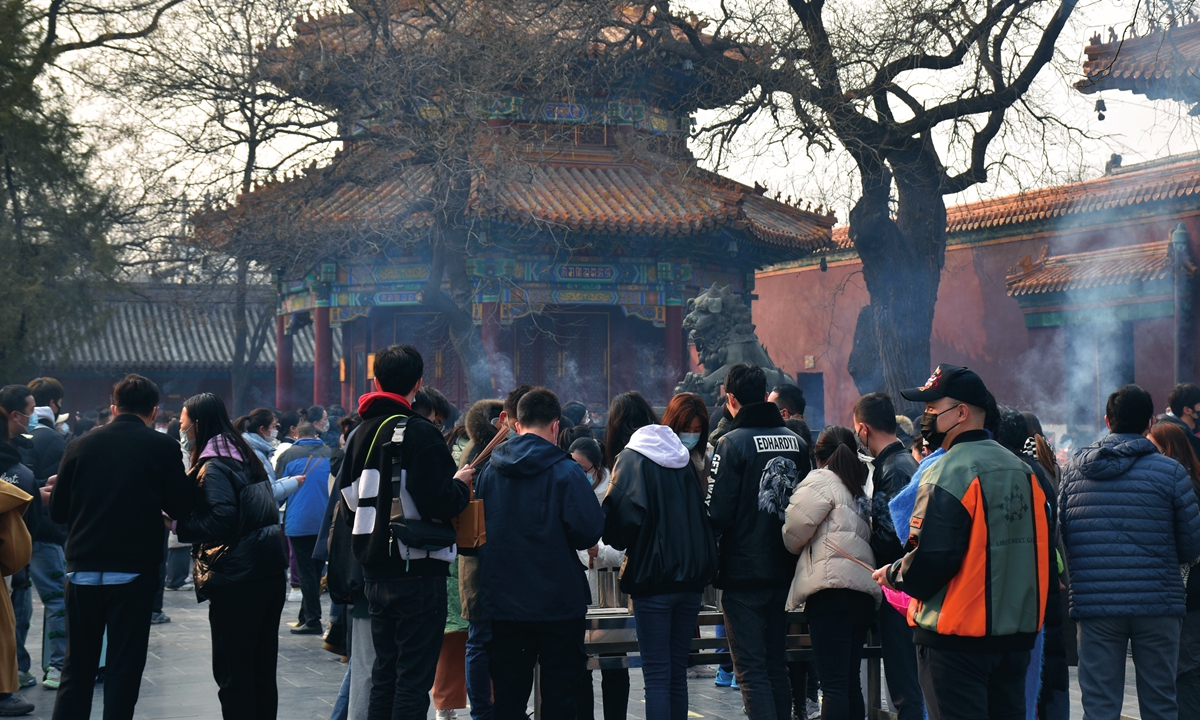
Pilgrims line up to pray for the good luck at Yonghe Lama Temple in Beijing on February 26, 2023.Photo: IC
A statement published on the website of China's National Religious Affairs Administration on Monday said that the administration has issued Order No. 19, announcing the "Regulations on the Management of Religious Activity Sites" will be implemented from September 1, 2023. At the same time, the "Procedures for the Establishment, Approval, and Registration of Religious Activity Sites" issued in 2005 will be abolished.
The implementation of the new regulations is of great significance for the thorough implementation of the "Regulations on Religious Affairs," the protection of the legitimate rights and interests of religious activity sites and religious believers, and the improvement of the institutionalization and standardization of religious activity site management, according to the statement.
The administration on the same day published another article to answer related questions from the press about the new regulations. For the necessity of issuing new regulations, the administration said that although the 2005 regulations helped the religious affairs management get improved in the past 18 years, "some places still have prominent issues of undemocratic and non-standard management, which have infringed upon the legitimate rights and interests of the religious community and believers. In response to this, religious figures, believers, and relevant sectors of society have called for further improvement of the relevant systems concerning religious activity venues."
The regulations consist of 10 chapters and 76 articles, which enhance the management system governing religious activity sites. They specify the procedures and requirements for the establishment and registration of religious activity sites, regulate the management of these sites, clarify the establishment and management organizations of religious activity sites, promote democratic management, establish sound personnel management systems, and standardize the religious activities, social activities, and external exchanges of personnel within the sites, the statement reads.
The regulations also define responsibilities for religious activity sites in terms of religious activity management, construction management, as well as safety management in areas such as fire safety, food, hygiene, and building regulations. They require the appointment of supervisors for religious activity site establishment and strengthen internal management. Furthermore, the regulations clarify the supervisory responsibilities of religious affairs departments, the educational guidance of religious groups, and the oversight rights of religious believers.
On the construction of religious activity sites, the regulations state that "The construction activities of religious activity venues should comply with relevant laws and regulations regarding land and spatial planning, engineering construction, ecological environment protection, fire safety, etc. For the construction, renovation, expansion, or reconstruction of religious activity venues or buildings within such venues, the necessary procedures for land use and construction must be carried out in accordance with the law. After the completion of the construction project, it can only be put into use after passing the relevant national acceptance inspection according to the regulations."
Global Times




